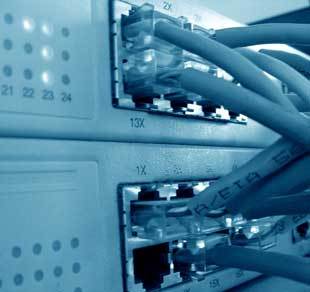The Federal Communications Commission has withdrawn a proposal to tax broadband Internet service after a public outcry over the issue.
With one FCC official calling the Internet tax “politically toxic,” Republicans and Democrats on the commission are blaming each other for the unpopular proposal.
The proposed broadband tax had flown under the public’s radar screen for months, but it gained wider attention in recent weeks.
FCC spokesman Neil Grace said Chairman Julius Genachowski was always skeptical about a broadband fee because he feared it would impede the development of technology. He claimed the commission made the proposal “following the urging of Republican commissioners and members of Congress.”
Blanket Denial
Robert McDowell, the only Republican on the commission when the proposal was introduced earlier this year, denied ever supporting the proposal.
“I have never suggested taxing broadband Internet access,” McDowell told The Hill newspaper. He added he doubts the FCC even has the legal authority to tax Internet service.
The Internet Tax Freedom Act explicitly prohibits the federal government from taxing Internet services. However, the FCC claims Universal Service is a fee charged to service providers rather than a tax on consumers and is therefore legal.
The Universal Service Fund (USF) was created under the Telecommunications Act of 1996 with the stated purpose of promoting “the availability of quality services at just, reasonable and affordable [telecommunication] rates for all consumers.”
The USF charges higher rates in urban areas in order to provide more affordable rates to rural consumers.
Converted to Subsidy, Rejected
The FCC “modernized” the Universal Service Fund (USF) last year, converting it into a broadband Internet subsidy called the Connect America Fund (CAF). The new program aims to provide high-speed Internet networks to underserved rural areas by giving subsidies to broadband service carriers.
However, service carriers have rejected more than half of the $300 million the CAF is initially offering them. AT&T and Verizon have declined all funding. AT&T did not state explicitly why it declined the offer, but the firm did say in a letter to the FCC it was “optimistic” about its plans to expand broadband services in rural areas.
Verizon likewise did not cite a specific reason for the decision, but its letter to the FCC noted the small amount of money involved ($19.7 million). Verizon services are concentrated in the densely populated Northeast states.
Tax Characterized as Reform
Genachowski issued a statement when the Internet tax was proposed saying the current contribution system was outdated and in need of reform.
“Today we propose three goals for contribution reform: efficiency, fairness, and sustainability,” Genachowski said. “And we underscore that any reforms to the contribution system must safeguard core Commission objectives, including the promotion of broadband innovation, investment, and adoption.”
Broadband expansion has been a top priority for Genachowski. He contends a high-speed Internet connection is critical for the economy and that expanding Internet access is the country’s next great infrastructure challenge.
May Hold Up Development
Others argue CAF may impede infrastructure development by distorting markets and subsidizing uncompetitive carriers.
“As structured, the Connect America Fund will slow new investment in potentially competitive technologies while allowing incumbent rural carriers to profit from the grace of government largesse, not through their own innovation,” said Steve Titch, a Heartland Institute policy advisor.
“While ratcheting up the taxes and subsidies, the FCC still has not adequately addressed the reason why rural universal service fees continue to increase even as rural broadband penetration declines,” Titch continued. “The FCC also refuses to consider the impact advances in wireless and satellite technologies might have in rural areas, and whether market forces can actually deliver them without subsidy.”
Scott Mackey, an expert on communication taxes, said government charges on that industry exceed those on other goods and services and conflict with the goal of expanding broadband coverage.
“Burdensome and discriminatory taxes deter the adoption and use of broadband, mobile, and other advanced ICT [information and communication technology] sector tools that are major drivers of growth in the information-based economy of the 21st century,” he said.
Tim Kelly ([email protected]) is a political cartoonist, policy advisor, and columnist for the Future of Freedom Foundation, and a correspondent for Radio America’s Special Investigator.



